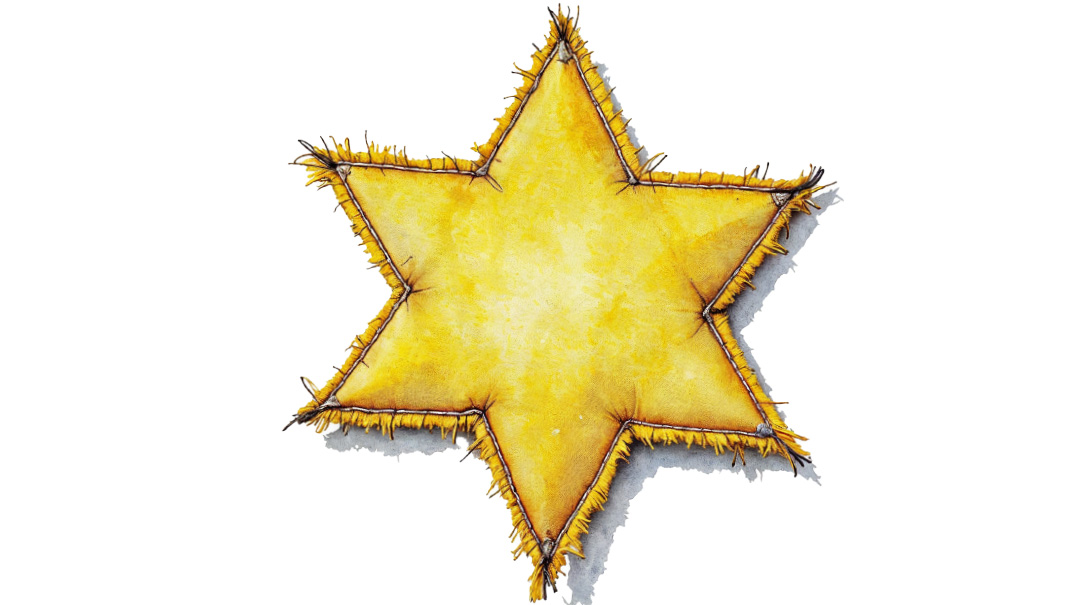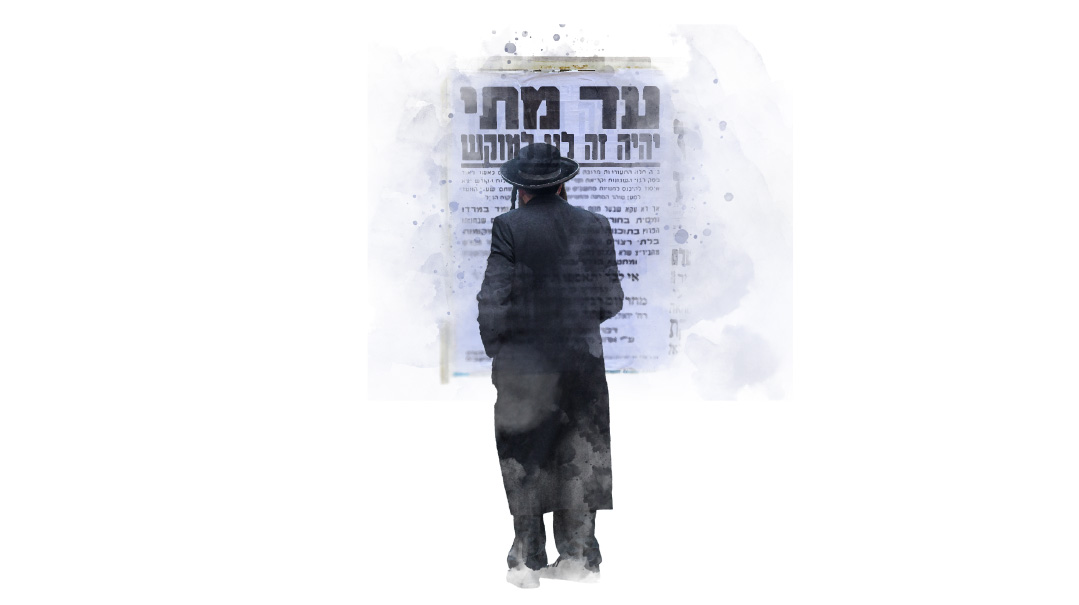The Long Downhill Road

From Kishinev to October 7 and beyond

Over one hundred years ago, the horrific Kishinev massacre in 1903 murdered 50 Jews, gravely injured 92, pillaged throughout the little Russian town, and burned down 1500 dwellings. Even a normally indifferent world community was shocked.
The hatred and savagery prompted the young poet Chaim Nachman Bialik, later to become known as Israel’s national poet, to write his angry poem, B’ir Hahareigah, In the City of Slaughter, a call to arms for Jews to rise up and become active defenders of our people. If we had our own state and army, went the cry, this would not have happened. Because we are stateless we are victims. So thought Bialik and his acolytes: We must roll up our sleeves and learn to fight. Enough with passivity and meekness; enough with pale- faced yeshivah bochurim poring over ancient texts. (And for some, enough with Torah and mitzvos.) It is time for us to flex our muscles and create a “new Jew”: tough, muscular, and fearless. Then and only then will the goyim have respect for us.
It was Bialik’s poem and the agitation of those who emulated him which were the catalysts for the beginnings of the Zionist movement — whose stated goal was to return to our ancient homeland, reestablish our people as a nation among nations, and thus to wipe out Jew-hatred.
Sadly, the history of 20th century anti-Semitism demonstrated that this was nothing more than a pipe dream. Pogrom followed pogrom, the authorities did nothing to protect their Jewish citizens, and in Chevron in 1929 there was further wanton slaughter of innocent Jews studying in a yeshivah.
The demands for a Jewish state as a solution grew louder: If we had our own land, this would not have happened.
And after Buchenwald, Auschwitz, and Birkenau the cries were insistent: If we had a state of our own, an army of our own….
And so the guilt-racked world established a Jewish independent state in 1948.
But nothing changed. The hatred that was once directed at the Jew in the shtetl was now directed at the Jew in the Jewish state. Arab hatred remained unchecked, and years of intifada and terrorism reached a climax on October 7, 2023. Despite a thriving Jewish state, a skilled army and air force, and excellent intelligence, Israel suffered this deadliest of pogroms — and on Jewish territory. Bialik’s “City of Slaughter” became the Land of Slaughter.
In Europe and America, a new eruption of Jew-hatred followed as a result — incredibly — of Israel’s reprisals against Hamas. And now a new pogrom, this time in Amsterdam, with European Jews unsure about their future. As an ironic result, at the next game, London deployed 4000 policemen to protect the Israeli soccer team and its fans from anti-Semitic mobs. Ironic, because soccer and the rest of Western culture was supposed to be the entry ticket for Jewish acceptance among the Nations. All this 120 years after Kishinev supposedly awakened the conscience of the world, and over 70 years after the founding of a Jewish state.
Is there a message here?
Obviously, the mantra that the tough, muscular Jew will somehow help abate anti-Semitism has been shown to be an empty slogan.
Why the world hates the Jew is beyond rational discussion. That Esau hates Yaakov seems built into the very DNA of the world. Perhaps it is because Jews and Judaism are constant reminders to the world that there is a G-d, and that He requires us to live in accordance with certain disciplines and within certain boundaries. Not everything we want to do is permissible. Mankind wishes instinctively to steal and plunder, but the thou-shalt-nots of the Jews stand as the conscience of the world. And that does not make us beloved.
It is clear that all the old remedies and cliches and shibboleths have been shown to be empty and bankrupt. And yet, many Jewish leaders still mouth them.
Exhibit A: As I write this, a new survey of American Jewish youth, ages 14 to 18, shows that fully 38 percent sided with Hamas in the present conflict. That is, 38 percent of this Jewish age cohort sided with a terror group whose stated purpose is to murder Jews and destroy the State of Israel. This is incredible. It demonstrates what Jewish ignorance can do to one’s thinking. One can be certain that a survey limited to day school and yeshivah students would have yielded quite different results.
How should the Jewish community react to these figures? So far, no one has addressed the root cause of the problem: abysmal Jewish ignorance. No one has mentioned greater exposure to Jewish learning and Torah teachings, to authentic Jewish schooling. One suggestion, from a prominent columnist and blog host, is to address these youngsters with more trips to Israel and more fun and entertaining activities.
The classic definition of a fool is one who repeats the same mistake over and over again. We Jews, supposedly among the most intelligent people in the world, are in this regard first-class fools.
It is time to flex our muscles — not only the physical ones, but the flabby spiritual ones; time to return to our roots, to rediscover who we are and why we are here; to retrain our young people so that they not embarrass us by not knowing the difference between Moses the Lawgiver and Moses Maimonides; to address the spiritual weaknesses that debilitate us, and to rid ourselves of empty concepts and catchphrases. Unless we do something dramatic, the 38 percent pro-Hamas group will mature into a majority pro-Hamas group.
It was a valiant try, but Zionism no longer exists. A Jewish state with armed forces is important, but that alone will not save us from the ravages of a hostile world. Imitation of the West has clearly run its course. Clearly, the time has come to look reality in the face, to strengthen our own very selves, and to try tasting some old-fashioned Judaism.
It takes a hero to admit error, to state publicly that he was wrong. We are a people of heroes. Do we have the strength to say to ourselves that all the modern solutions we tried have run up a dead end?
Even Bialik, wise and heroic, would by now be admitting his errors. Instead of his poem about the Ir Hahareigah, he would be pointing us to his other famous poem: Im Yesh et Nafshecha Ladaat — If You Want to Know the Hidden Secret of the Jewish People — in which he writes of the yearning of the Jewish soul for connection with the Divine, and in which he urges his readers “to go to the Beit Midrash where our hidden strength is found….”
The Beit Midrash has open doors. Those with courage and intellectual honesty are not afraid to venture inside.
(Originally featured in Mishpacha, Issue 1040)
Oops! We could not locate your form.







